Fever Tree is a former American psychedelic rock band of the 1960s, chiefly known for their anthemic 1968 hit, "San Francisco Girls ".

Hey Ricky is the title of the tenth album release by Melissa Manchester. It was issued on Arista Records in April 1982.
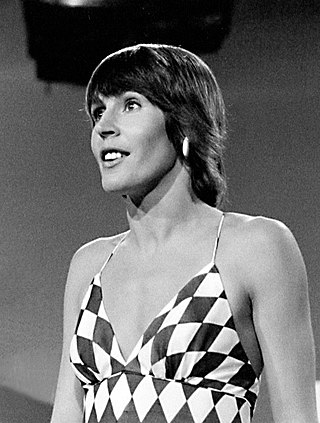
Australian-American singer Helen Reddy (1941–2020), often referred to as the "Queen of 70s Pop", recorded 18 studio albums, seven of which have achieved sales of 500,000 units in the US for which they were awarded Gold certification by the Recording Industry Association of America. One of those seven, I Am Woman, eventually went Platinum by reaching sales of one million copies, and her first compilation album, Helen Reddy's Greatest Hits, was awarded Double Platinum status in 1992 for hitting the two million sales mark. The respective US and Canadian album charts in Billboard and RPM magazine each had appearances by 10 of these LPs during the 1970s.

Lookin' Good is the thirty-third solo studio album by American country music singer-songwriter Loretta Lynn. It was released on October 13, 1980, by MCA Records.
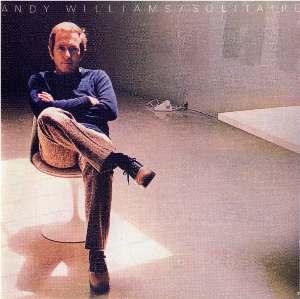
Solitaire is the thirty-first studio album by American pop singer Andy Williams, released in the fall of 1973 by Columbia Records and was an attempt to move away from his formulaic series of recent releases that relied heavily on songs that other artists had made popular.

Let's Love While We Can is the thirty-seventh studio album by American pop singer Andy Williams, released in the U.K. in 1980 by CBS Records. For this project Williams eschews covering well-known pop hits and standards and relies mostly on original or lesser-known country songs.
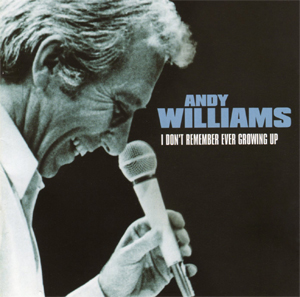
I Don't Remember Ever Growing Up is the forty-third and final studio album by American pop singer Andy Williams, released in the UK by the Demon Music Group in 2007. In the liner notes of the album Williams writes, "Over the past few years I have come across songs that I really wanted to record. I picked 13 of my favorites and set out to make a new record." While the title track is the only new song, the other 12 selections were chart hits for other artists or, as is the case with "Desperado" by the Eagles, received critical acclaim without having been released as a single.
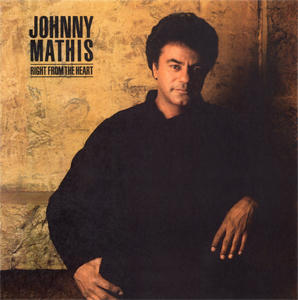
Right from the Heart is an album by the American pop singer Johnny Mathis that was released on March 18, 1985, by Columbia Records. It was his first album without songs that were previously recorded by other artists. The title track is one of the album's four ballads that, along with four of the remaining six up-tempo tracks, delve into the subject of relationships, but it is the synth-driven "Step by Step" and the anthemic "Hold On" on which Mathis take a break from the usual focus on love songs. The former offers the hope that can be found in change that comes gradually until "I can see the way free from yesterday to a new beginning". The latter stresses the importance of being oneself: "Life is a party. Why don't you come the way you are?"

Helen Reddy is the second studio album by Australian-American pop singer Helen Reddy, released on November 8, 1971, by Capitol Records. Reddy's selections include tracks by singer-songwriters Carole King, John Lennon, Randy Newman, and Donovan. It debuted on Billboard magazine's Top LP's chart in the issue dated December 4, 1971, and had a seven-week chart run in which it got as high as number 167. On March 29, 2005, the album was released for the first time on compact disc as one of two albums on one CD, the other album being I Don't Know How to Love Him, Reddy's debut LP that originally came out in the spring of 1971.
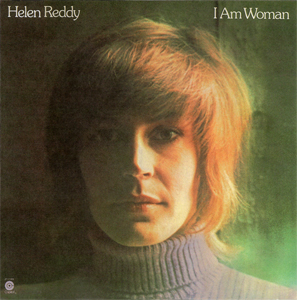
I Am Woman is the third studio album by Australian–American pop singer Helen Reddy, released on 13 November 1972, by Capitol Records. The album included her second recording of the song that gave the album its name, which was also the version that spent a week at number one on the Billboard Hot 100. The album debuted on the Billboard Top LPs & Tape chart in the issue dated December 9, 1972, and reached number 14 during a 62-week run, and in Canada's RPM magazine it peaked at number seven. On March 7, 1973, the Recording Industry Association of America awarded the album with Gold certification for sales of 500,000 copies in the United States, and Platinum certification for sales of one million copies came on December 5, 1991. On July 22, 2003, it was released for the first time on compact disc as one of two albums on one CD, the other album being her 1973 release Long Hard Climb.
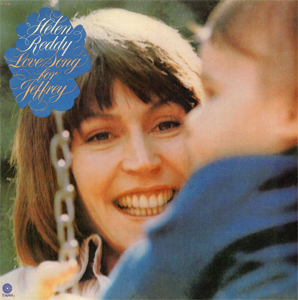
Love Song for Jeffrey is the fifth studio album by Australian-American pop singer Helen Reddy, released on March 25, 1974, by Capitol Records. The album focused on her family, giving special attention to those who had died within the past year. A tribute on the back cover reads: "In memory of my mother, Stella Lamond Reddy, July 1973, my father, Max Reddy, September 1973, and my beloved aunt, Helen Reddy Sr., January 1974."
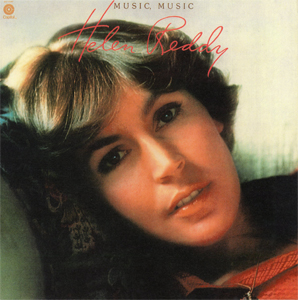
Music, Music is the eighth studio album by Australian-American pop singer Helen Reddy that was released in the summer of 1976 by Capitol Records and later described by J. Scott McClintock for AllMusic: "There are breezy, Bacharach-ian excursions, bluesy numbers, light country ('Mama'), jazzy ballads, and even a little Philly soul. On August 2 of that year the Recording Industry Association of America awarded the album with Gold certification for sales of 500,000 copies in the United States. It debuted on Billboard's Top LP's & Tapes chart that same month, in the issue dated August 14, and got as high as number 16 during its 13 weeks there, and in Canada's RPM magazine it peaked at number 14. The third album recorded by Reddy with producer Joe Wissert, Music, Music was cited in 1977 by Reddy as a personal favorite from among her albums. On August 23, 2005, Music, Music was released for the first time on compact disc as one of two Helen Reddy albums on one CD, the other album being her 1975 studio release, No Way to Treat a Lady.

Ear Candy is the ninth studio album by Australian-American pop singer Helen Reddy, released on 25 April 1977 by Capitol Records. The album included a modern take on the doo-wop genre, a Cajun number that gave the Melbourne native her first and only appearance on Billboard magazine's Country chart, and a dark self-parody on which Reddy proclaims: "I don't take no shit from nobody". Unusually, half of the songs recorded for Ear Candy were co-written by Reddy herself, including the second single: "The Happy Girls", Reddy's first self-penned A-side single since "I am Woman". The album's first single, a remake of the 1964 Cilla Black hit "You're My World", gave Reddy a final Top 40 hit.

We'll Sing in the Sunshine is the tenth studio album by Australian-American pop singer Helen Reddy that was released in 1978 by Capitol Records. The album included two songs that were also covered by Johnny Mathis in the first half of that year: "All I Ever Need", which came out on his March release, You Light Up My Life, and "Ready or Not", on which he duetted with Deniece Williams for their June release, That's What Friends Are For. Reddy also ventures into Beatles territory with their rockabilly number "One After 909" and takes on Jeff Lynne's "Poor Little Fool" with accompaniment in the vein of Electric Light Orchestra. This was her first album not to reach Billboard's Top LP's & Tapes chart. On February 23, 2010, it was released for the first time on compact disc as one of two albums on one CD, the other album being her 1977 release, Ear Candy. "Blue" was originally featured on the 1977 animated film Raggedy Ann & Andy: A Musical Adventure.
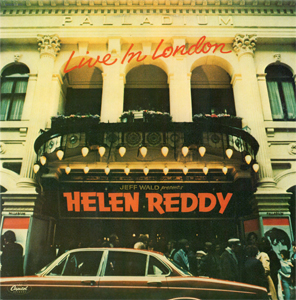
Live in London is the first live album by Australian-American pop singer Helen Reddy that was released in 1978 by Capitol Records and, as with her previous release, did not reach Billboard magazine's Top LP's & Tapes chart. On June 25, 2002, the album was released for the first time on compact disc.

Reddy is the eleventh studio album release by Australian-American pop singer Helen Reddy. Between 1971 and 1978, Reddy had ten studio albums released by Capitol Records, the label also having issued her Greatest Hits album and a concert album: Live in London, the latter issued in December 1978 - which same month Reddy filed suit claiming Capitol Records had shortchanged her $1,793,000, the suit being an apparent bid to win release from the label. However Reddy, issued in June 1979, would be released by Capitol Records, Reddy's tenure with the label extending to include her twelfth studio album: Take What You Find, issued in 1980.

Take What You Find is the twelfth studio album by Australian-American pop singer Helen Reddy that was released in 1980 by Capitol Records. It was her last album while under contract with the aforementioned record label before signing with MCA Records. Like the previous three -- We'll Sing in the Sunshine, Live In London, and Reddy—it failed to sell enough copies to reach Billboard magazine's list of the 200 Top LP's & Tapes of the week in the US but also became her first studio LP that didn't have a single appearing on either the Billboard Hot 100 or the magazine's Easy Listening chart.

Play Me Out is the thirteenth studio album by Australian-American pop singer Helen Reddy that was released in 1981 by MCA Records. Having recorded 12 studio albums at Capitol Records over a 10-year period, she felt the move was "'long overdue... For the last three years I didn't feel I was getting the support from them.'" Whatever support she received from the new label was not enough to get the album onto Billboard magazine's Top LPs & Tape chart.

Center Stage is the sixteenth studio album by Australian-American pop singer Helen Reddy that was released in 1998 by Varèse Sarabande. Reddy describes the album as the perfect melding of two areas of her career: "the recording studio and the theatrical stage. I tried to select songs from various songwriters in different eras. I've also included a song from each of the musical shows I've performed in."

Mathematics is the twelfth studio album by singer-songwriter Melissa Manchester, issued in April 1985.




















